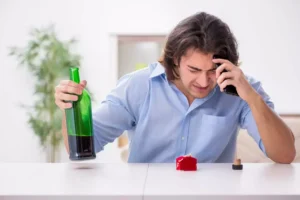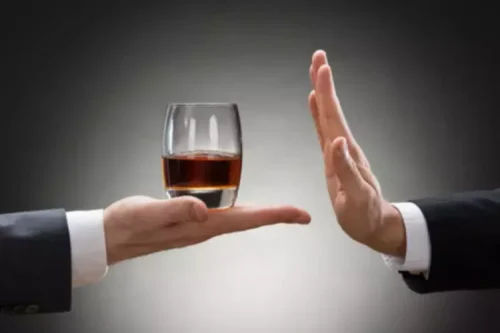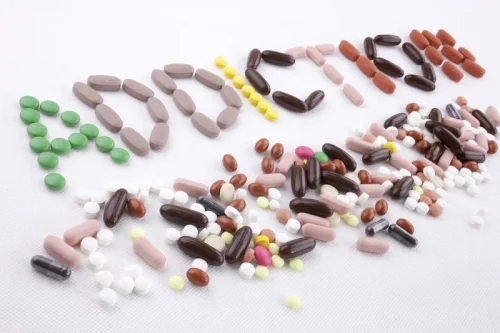Why You Should Limit Alcohol Before Bed for Better Sleep

As alcohol increases GABA activity in the brain, you may start to feel sleepy. But this doesn’t mean a nightcap should be part of your bedtime routine. There are many things to help you get a good night’s sleep, including certain drinks like herbal teas, turmeric lattes, and tart cherry juice. Drinks to avoid close to bedtime include alcoholic, caffeinated, and sugary drinks. If you still have sleep problems, consult a healthcare provider for more guidance. Breathing problems — Since alcohol’s sedative effect extends to your entire body, including your muscles, it may allow your airway to close more easily while you’re asleep.
What is alcohol’s impact on circadian rhythms and REM sleep?

Using alcohol to help you relax and sleep may actually be masking a sleep disorder that needs treatment. It’s probably been ‘helping’ us to sleep since we discovered how to make it at least 9,000 years ago. Here at Sleep Advisor, our editorial team utilizes reputable sources and expert feedback to provide well-researched sleep health content. 💙 Engage in gentle movement with Mel Mah’s Sleep Routine guided exercise to release excess stress and energy to promote deep rest. A comfortable mattress and pillows can also encourage better, more relaxing sleep without the need for alcohol to help you wind down.

When should you not take sea moss?
What you want is just an ounce of booze or a little more than that of port or other fortified wine, no more. Not enough to mess up your sleep beyond an extra toss or turn or two. If you’ve been out drinking, you don’t need that nightcap — indeed, it would be a bad idea all around. Milk contains tryptophan, which helps increase melatonin levels and induce sleep. Drinking warm milk before bed is also a soothing nighttime ritual. Multiple studies have found that warm milk may improve sleep quality and decrease movement at night, but further studies are needed to confirm these claims (55, 56, 57, 58).
Snoring and Sleep Apnea
- Maybe you enjoy a glass of beer or wine after dinner, or your weekends include drinking with friends at bars or social events.
- Here, we explore how a nightcap affects your body and brain, and whether it throws your sleep just slightly off track — or majorly out of whack.
- Alcohol can also sometimes act as a stimulant, making you feel more awake instead of sleepy.
- Here, we explore the science behind the best drinks to have before bed.
Dr. Seema Khosla is the medical director of the North Dakota Center for Sleep and a medical advisor for MedBridge Healthcare. She is also a fellow of the College of Chest Physicians, as well as the American Academy of Sleep Medicine (AASM). Dr. Khosla runs a telemedicine outreach program that serves rural areas in North Dakota and has done so for the past decade. She is active within AASM and has served on numerous AASM committees, including the original Telemedicine Task Force.
This is because valerian root contains compounds called valerenic acid and valepotriates, which are believed to interact with GABA receptors in the brain, promoting feelings of calm and reducing anxiety. As a result, drinking a warm cup of valerian root will help you relax and fall asleep faster. As a general rule, Meadows said, people should aim to leave at least three to four hours between drinking and sleeping to avoid sleep disruption. “For the best sleep, try to have at least four alcohol-free nights every week,” Meadows said.

Best Cocktails to Mix Before Bed
RISE users on iOS 1.202 and above can set up their avoid late alcohol reminder here. RISE uses your phone use does alcohol help you sleep data and sleep science algorithms to work out how much sleep you need — and it could be more than you think.
How Alcohol Affects Sleep & Exercise
Thirdly, alcohol causes restless sleep, which, as well as adding to sleep debt, is less restorative than unbroken sleep and can make you feel more fatigued. When you’ve got a lot of sleep debt, you might reach for an extra cup of coffee or take a long daytime nap. But these behaviors can make it harder to sleep the next night, leading to even more sleep debt. Firstly, alcohol can cause tiredness as it can act as a sedative. It’s a central nervous system depressant and it slows your brain activity. This can happen as your blood alcohol levels fall or with high doses of alcohol.
- Watch bartender Jacques Bezuidenhout make one with Irish Whiskey.Get the recipe for the Hot Toddy here.
- Drinking a warm beverage every night can cue your body and mind that it’s almost bedtime.
- “You’re more likely to be tired and disoriented and have difficulties concentrating,” Dr. Winter says.
- But these behaviors can make it harder to sleep the next night, leading to even more sleep debt.
The Best Nightcaps To Mix Before Bed
- Remember, quality sleep is fundamental to overall health and well-being, and finding safe, effective ways to improve your rest should be a priority.
- If you have trouble sleeping and rely on booze to fall asleep, this may cause you to drink more to get the sleepiness effects you used to feel.
- “In the first half of the night, alcohol increases the amount of time you spend in slow-wave sleep,” Dr. Shelgikar says.
- It’s probably worth zooming out and actually rethinking what you’re doing earlier in the day.
- Too many pints — or that extra glass of wine — can be the trigger for waking up bathed in sweat with your pillow soaking wet.
Ashwagandha tea

Leave a Reply
Want to join the discussion?Feel free to contribute!